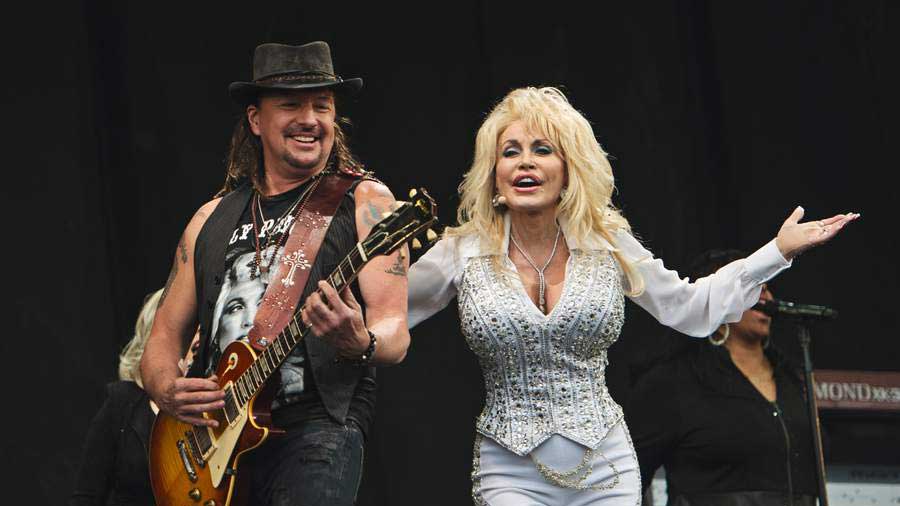Trust Dolly Parton to come out all guns blazing. When the country star needed a name rock guitarist to bolster recent album Rockstar’s opening title track and statement of intent, she turned to former Bon Jovi man Richie Sambora, who had backed her at Glastonbury a decade earlier. “
It was an honour to be asked,” he tells us.

How far back does your friendship with Dolly go?
Well, Dolly covered [Bon Jovi’s] Lay Your Hands On Me in 2014. That summer, I was on a tour of my own for a solo record called Aftermath Of The Lowdown. And on my day off I got a call. Dolly was doing Glastonbury, and she needed some rock’n’roll juice. So I go: “Of course.”
But I said: “You’re gonna have to chopper me out there.” Because, y’know, Glastonbury is in the middle of nowhere and there’s five million people in one road. That was the first time we’d ever met. We walked out on stage in front of 225,000 people, and we blew the place up. I flew back to London and played with Stevie Wonder that evening – on my day off!
Was Dolly part of the culture when you were growing up in New Jersey?
Of course. Country music started for me with Johnny Cash and Dolly Parton. I was a blues hound, y’know, a rock guy that loved everything, starting out with the whole English invasion that happened to us here in America in the sixties, when I had teeth [laughs]. And it continued on. How could you not be a fan of the great songwriting in country? Hank Williams, Patsy Cline, everybody else. But Dolly and Johnny Cash were the entry points for a young guy in America.
The track you did and the album are titled Rockstar. Do you consider Dolly to be one?
Of course. What I heard is that she gets inducted to the Rock And Roll Hall Of Fame, and [initially] she turned it down because she didn’t make a rock album. So then, when she wanted to make a rock album, what else would it be called? It’s kind of impossible to describe her. She’s a phenomenon. She knows what she’s doing, and she has done for a long time. I don’t want to insult the woman by saying her age. I actually do not know her age – and she is timeless. It’s like she’s been here for ever and she will continue to do so. There’s only one. Let’s face it: Dolly is Elvis, man.
What did you think of Rockstar, and what are your memories of recording the track?
I loved her self-proclamation in the lyric. Dolly and Kent [Wells], her producer, they kinda left it on me to do what I do, to make that kind of record come to life. I recorded my parts at the Power Station [in Manhattan], where I once worked as a session guy. It was April and it was snowing. I have an apartment with my girlfriend here in Hell’s Kitchen, and I walked there like I would normally do when I was nineteen years old.
I brought in Nile Rodgers’s engineer, Russell Graham. It was basically just the two of us. And I had a gas, we tore it up. There’s some talk-box guitar on that track, y’know, if you want a bit of my moniker on there. I sang background vocals too – I used my Beach Boys harmony training for all that stuff. And it went that quick [claps hands]. That means it was supposed to be, as far as I know about making records.
There can be a certain scepticism in rock’n’roll circles. What would you say to someone who isn’t sure whether to investigate a rock album by Dolly Parton, best known as a country artist?
Music is coming from a long time ago and we’re all just pushing it on. So hop on. I learnt how to play guitar by listening to records, reading the backs of records: let’s find out where Zeppelin got their shit from, let’s find out where The Beatles came from. They came from Chuck Berry and Muddy Waters and Good Golly Miss Molly and Little Richard. And where did they come from? That’s the way people should look at it. Dolly may have been the beginning of that movement, whatever you want to call it. If you’re not a fan of Dolly, you don’t understand music very much.
Did Dolly give you her verdict on your contribution on Rockstar?
It’s on the record, isn’t it? [laughs].

